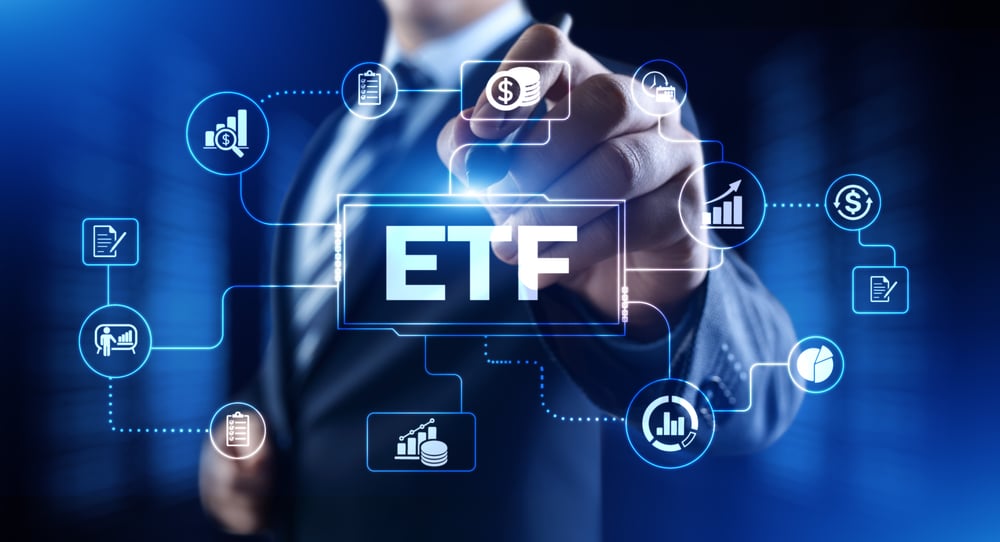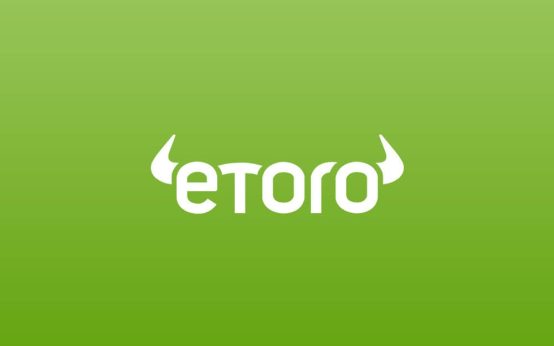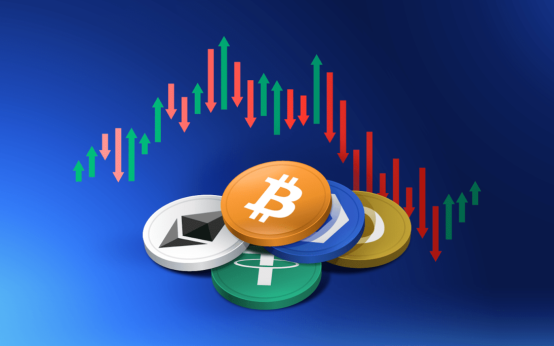An exchange-traded fund (ETF) aims to replicate the value of an index or group of underlying assets as closely as possible. It’s like though a financial services company buys a variety of assets to make up its fund.

These shares, which make up the fund’s worth, are sold by this company via brokerage houses. These shares are available for trading on stock exchanges. Note that current exchange-traded funds (ETFs) are tailored to certain asset classes.
Study up on ETFs.
The existing exchange-traded funds (ETFs) are based on nearly any kind of security or asset that is offered on the financial market. The stock ones follow a company’s stock sector. Bond investors can purchase garbage bonds, high-grade debt, and Treasuries with certain maturities.
One can purchase currencies at the exchange, whether they are for a country or a region. Conversely, hybrids already incorporate a variety of assets. Both ultra-wide and ultra-narrow focus are possible with ETFs. That is, monitoring a small group or a large market.
Regarding costs, it is typical to be required to pay an annual administration charge while owning shares of an exchange-traded fund (ETF). Don’t worry, though; these ETF fees are regarded as minimal. Commission costs may also be imposed by certain brokerage firms. Therefore, understand the expenses associated with an ETF before purchasing it.
Additional details regarding ETFs
If you sell your investment once you have a stock exchange-traded fund (ETF), the proceeds are distributed equally. When investing in exchange-traded funds (ETFs), it’s important to consider the tax implications.
Mutual funds and exchange-traded funds (ETFs) share certain similarities, but they differ greatly, particularly in terms of taxes. A part is purchased in relation to the underlying assets when investing in a mutual fund; this is not the case with ETFs.
The ETFs, or their shares, are often traded throughout the day on exchanges. Mutual funds are often traded at the end of the day and are either purchased or sold.
The many kinds of ETFs and investing strategies
The most popular ETF types are a few different kinds. These include exchange-traded funds (ETFs) for commodities, foreign markets, indexes, bonds, and industries or sectors. ETFs that concentrate on certain investment strategies, like dividend growth or smart alpha or beta, are also available.
When the value of the underlying assets declines, other ETFs profit from short selling. Developed ETFs provide up to a treble return on the underlying assets or indices, which can be either a gain or a loss.
You can use practically any brokerage firm to buy or sell ETFs in order to invest in them. Another choice is to use a robo-advisor, who would handle these assets for you. Simple stock market trading, tax efficiency, rapid diversification, cheaper investment costs, and other benefits are all benefits of investing in exchange-traded funds (ETFs).

 eToro is a recently launched cryptocurrency platform that offers a small range of stocks and exchange-traded funds (ETFs) <p class='sec-title' style='line-height: normal; font-weight: normal;font-size: 16px !important; text-align: left;margin-top: 8px;margin-bottom: 0px !important;'>, an online brokerage platform, and the ability to trade 65 different cryptocurrencies.</p>
eToro is a recently launched cryptocurrency platform that offers a small range of stocks and exchange-traded funds (ETFs) <p class='sec-title' style='line-height: normal; font-weight: normal;font-size: 16px !important; text-align: left;margin-top: 8px;margin-bottom: 0px !important;'>, an online brokerage platform, and the ability to trade 65 different cryptocurrencies.</p>  Are you familiar with cryptocurrencies? <p class='sec-title' style='line-height: normal; font-weight: normal;font-size: 16px !important; text-align: left;margin-top: 8px;margin-bottom: 0px !important;'>An encrypted digital currency that serves as a means of exchange and employs cryptography to protect and validate transactions as well as regulate the issuance of new units of a specific cryptocurrency is all that constitutes cryptocurrency.</p>
Are you familiar with cryptocurrencies? <p class='sec-title' style='line-height: normal; font-weight: normal;font-size: 16px !important; text-align: left;margin-top: 8px;margin-bottom: 0px !important;'>An encrypted digital currency that serves as a means of exchange and employs cryptography to protect and validate transactions as well as regulate the issuance of new units of a specific cryptocurrency is all that constitutes cryptocurrency.</p>  Find out more about Bitcoin and how to purchase. <p class='sec-title' style='line-height: normal; font-weight: normal;font-size: 16px !important; text-align: left;margin-top: 8px;margin-bottom: 0px !important;'>You've come to the perfect site if you want to understand everything there is to know about Bitcoin, including its definition, how it operates, and how to purchase it.</p>
Find out more about Bitcoin and how to purchase. <p class='sec-title' style='line-height: normal; font-weight: normal;font-size: 16px !important; text-align: left;margin-top: 8px;margin-bottom: 0px !important;'>You've come to the perfect site if you want to understand everything there is to know about Bitcoin, including its definition, how it operates, and how to purchase it.</p>